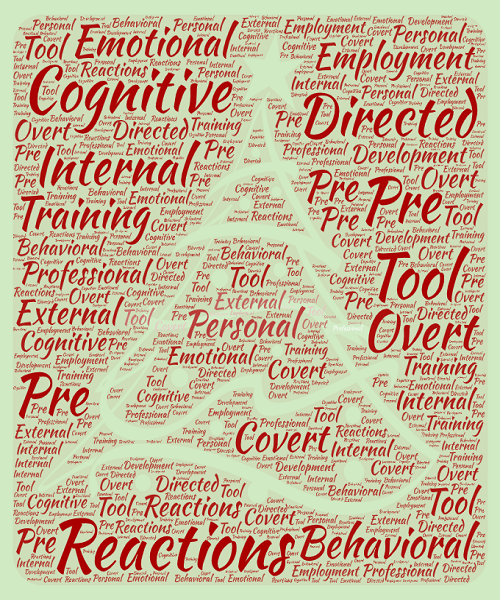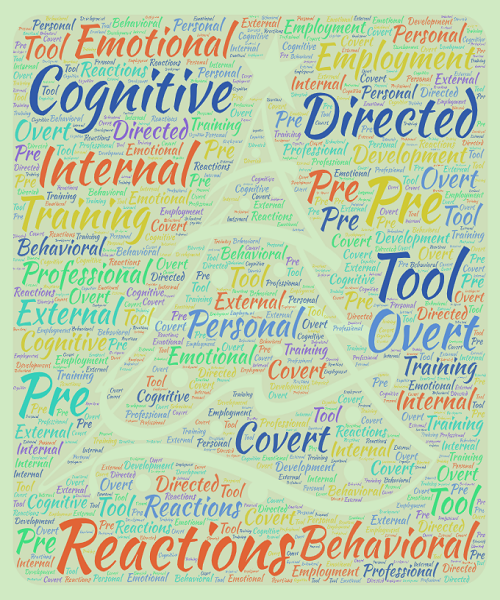Description
People who feel that it’s a sign of weakness to admit when you’re wrong also tend to become very defensive when criticized.
Constructive criticism is often difficult to accept but in the long run, it’s worth taking into consideration. However, that can sometimes be easier said that done, as very few people enjoy being told that their behavior can be improved upon. Feedback regarding our competence levels, especially if it contradicts what we believe about ourselves, can challenge and undermine our sense of self-worth. While some people surely deliver negative feedback in an offensive and inappropriate manner, it’s important to keep in mind that people who offer constructive criticism (at least from their perspective) usually mean well. The goal of constructive criticism, if delivered in an open and non-confrontational manner, is to guide an individual – to highlight strengths and to outline areas where skills can be improved. How a person receives and interprets the criticism is the key to its effectiveness.
One of the main reasons why people become defensive in light of constructive criticism often stems from a misinterpretation of the critic’s intent. When people interpret negative feedback as an assault on their character, this makes it much more likely that they will feel the need to defend themselves. The ultimate objective of criticism in most cases, however, is to change the behavior, not the individual. As common as constructive criticism is in our everyday life, it can still deal a hurtful blow to our self-esteem because in the end, we all want to succeed. The most important lesson to keep in mind here is to not generalize criticism to other aspects of one’s life or to one’s character.
The goal of the Sensitivity to Criticism test is to assess whether the candidate is willing and able to deal with negative feedback. Three elements are assessed: cognitive, emotional and behavioral reactions to criticism. The cognitive level consists of the thought patterns experienced in reaction to criticism; it assesses not only whether the candidate thinks the criticism is justified but also whether he / she blames himself / herself or others when being criticized. The emotional aspect evaluates whether criticism tends to stir up positive or negative feelings in him / her – and at whom they are directed. The final level – behavioral response – assesses whether or not the information gained from the criticism is accepted whole-heartedly and put to good use.
Purpose: SCRT – R will assess whether an individual becomes defensive in response to constructive feedback.
Vitals
No. of questions: 60
Question type: Situational, self-report
Estimated completion time: 20 minutes
Shorter versions of assessment: N/A
Recommended age level: 18+
Qualification Level: Class A
Compliance: APA standards; EEOC standards (gender, age, disability, ethnicity)
Validation Information:
● Sample Size: 3664
● Cronbach’s Alpha: 0.94
Features
Benchmarks: Available (general population and 21 industries)
Interview Questions: Available
Group Comparisons: Available
Report Includes:
● Summary
● Introduction
● Graphs
● Detailed narrative interpretation
● Strengths and Limitations
● Advice
Factors and Scales:
Overall Score plus 6 scales:
● External Cognitive Reactions: Personal thoughts directed toward the critic and critique.
● Internal Cognitive Reactions: Personal thoughts directed toward self.
● Other-Directed Emotional Reactions: Feelings directed toward the critic and the critique.
● Internally-Directed Emotional Reactions: Feelings directed toward self.
● Overt Behavioral Reactions: Outright reactions directed toward the critic during and after criticism delivery.
● Covert Behavioral Reactions: Indirect reactions toward critic and criticism after feedback is delivered.







Reviews
There are no reviews yet.